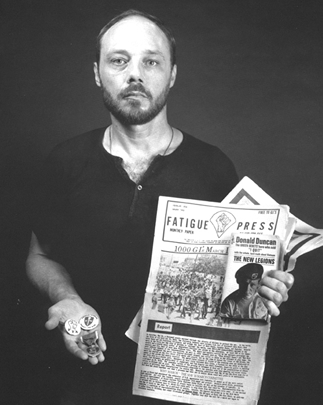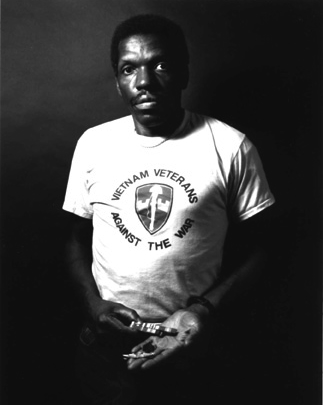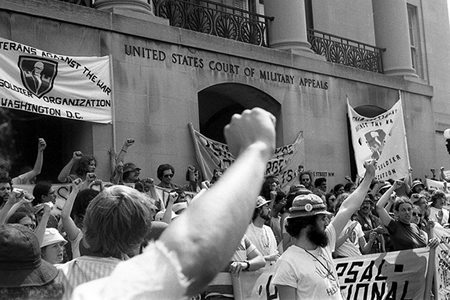Disobeying Orders: G. I. Resistance to The Vietnam War
Directed and produced in 1990 by Pam Sporn
29 minutes
To purchase DVDs or streaming licenses for educational, library, and community screenings, please go to our distributor Alexander Street Press or
Kanopy.
For individual home use only, please go to Vimeo On Demand.
Disobeying Orders focuses on the antiwar movement within the armed forces during the Vietnam War. Interviews with Vietnam veterans, including a navy nurse, are interwoven with archival photos, film footage, and popular music of the 1960's. One nurse coordinated an airdrop of antiwar leaflets over her naval base for which she was court-martialed. A black soldier spent time in the stockade for his protest of the military's racial discrimination. One powerful scene shows a group of high school students thoughtfully listening to the veterans’ experiences and advice regarding military recruitment. This film highlights the intersection of the civil rights and antiwar movements, and the ethics of whether to follow orders that one feels are immoral.
Disobeying Orders was my first film. I was teaching history at Schomburg Satellite Academy High School in the South Bronx during the era of civil war and US intervention in Central America. I found teaching about the War in Vietnam gave my students a context for understanding imperialism, militarism and what was happening in El Salvador and Nicaragua. At the time, Vietnam Veterans Against War had a speakers program that sent Vietnam Vets to high schools to share their experiences in Vietnam and explain their opposition to US military involvement in Central America. When the VVAW members came to my classes the students were spellbound. I decided to create a documentary that could preserve the powerful message of the Vietnam Veterans and their profound exchanges with my students.


Photos by William Short
I made Disobeying Orders: G. I. Resistance to The Vietnam War over 20 years ago and it may be a bit rough in style. However, I believe the film is as relevant as it was in 1990, for the children of the students I had in the 1980s and 1990s are coming of age in a time when 20% of the Federal tax dollars is spent on the military and 2% is spent on education.
I am gratified that the stories of these brave anti-war veterans were captured on film. Two of them, Dave Cline and Clarence Fitch, have since passed on, felled by the on-going trauma of war.

